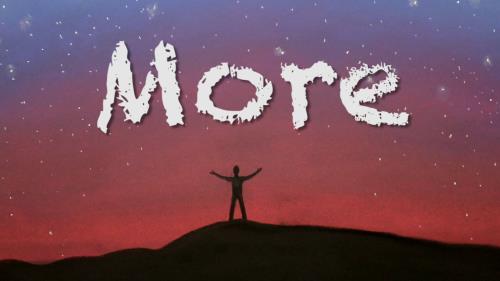-
Tired Thinking Series
Contributed by Rodney V Johnson on Nov 28, 2017 (message contributor)
Summary: This message focuses on how our thinking affects our physical bodies. It also looks at the differences between a thought and the thinking process.
Tired Thinking
Our Thoughts Are Not God’s Thoughts
Scriptures: Prov. 15:13; 17:22; 2 Cor. 10:3-5; Rom. 12:2; Phil. 4:8
Introduction:
The title of message this morning is “Tired Thinking” with a subtitle of “Our Thoughts Are Not God’s Thoughts.” This will be a two part message.
There is an old negro spiritual we sung years ago when I was a child that says “I’m tired Lord, my soul needs resting; I’m tired Lord, my soul need resting, I’m tired Lord, my soul needs resting, but I can’t stop now until my work is done.” I want you to think about this song for the next two weeks because what we decide in our minds is what our bodies will follow. Many of us are tired mentally which leads to our being tired physically. Our minds are tired resulting in thinking patterns outside of what our true potential are in Christ. If we can get back on track with how we are thinking there are many areas in our lives that will come back into balance and thus have a positive impact on our physical health.
Before I go further I want to share two stories with you. Both of these stories will demonstrate the power our minds and illustrate the truth of God’s word. The first story is about a friend of mine whom I was stationed with in the military. It was common for those serving in the military to smoke and my friend was no exception. I would often talk to him about quitting but he always smiled and told me to leave him alone so he could his enjoy his cigarette. This went on between us for years. When I was discharged from the military, we stayed in touch and I would continue to harass him about his smoking. Several years ago he suffered a stroke while he was at work. While recovering from the stroke he noticed that he no longer had a desire to smoke (and he has not touched another cigarette since.) I asked him recently if he missed smoking and he told me that not only did he not miss it, but that when he had his stroke apparently the part of his brain that influenced his smoking was affected. He did not have any withdrawals or anything from his sudden stopping of smoking; it was as if his stroke caused his brain to turn off the brain’s need for nicotine. Addiction happens in the brain so when he had his stroke, apparently the part of his brain that signaled his need for nicotine was affected and after many years of smoking, his mind shut it down. He did not have to try any methods to stop smoking as the stroke did it for him.
My father on the other hand stopped smoking later is his life. He stopped by choice. He went through withdrawals and his mind never stopped craving the nicotine. For my father, smoking was one of the ways in which he coped with stress. When he was stressed he craved the sensation he received from smoking. After he stopped smoking, the desire to smoke was ever present with him. He told me once that he would literally dream about smoking when he was asleep. Later in his life he developed emphysema and had to use oxygen. Even when there were times when he could barely breathe he told me he still craved the cigarette. What was the difference between my father and my good friend? In the case of my friend, the stroked changed part of his brain that changed his desire to smoke. If he had not had the stroke he would probably still be smoking today. In the case of my father, he chose to stop smoking and he used his will to change his response to the impulses that were triggering his need to smoke. While his mind still craved the nicotine his spirit man overrode the impulses. He refused to give in to the request of his mind that it needed nicotine. This was not something that happened overnight and there were times when my father would slip one, but for the most part after he stopped, he faithfully fought the urge to restart.
Both of these stories illustrate to us the power of our minds and how we think. People say that the mind is a powerful thing and we do not yet realize just how much power we have within us. The power of our mind is so great that if our thinking becomes hindered it can kill us. When our thinking becomes so tired it begins to take a physical toll on our bodies. Hear what was recorded in Proverbs.
Proverbs 15:13: “A merry heart maketh a cheerful countenance; but by sorrow of the heart the spirit is broken.”

 Sermon Central
Sermon Central



